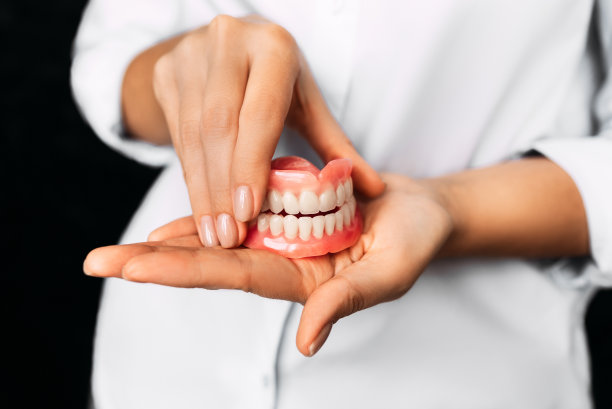Summary: Dental implant treatment is revolutionizing the field of dentistry by offering transformative solutions for those suffering from tooth loss. This comprehensive guide delves into the intricacies of dental implants, explaining the procedure, exploring the benefits, addressing potential risks, and discussing aftercare. Whether you seek to improve your oral functionality or enhance your smile, dental implants can significantly change your life. This article serves as an essential resource for understanding how dental implants work and their potential impact on quality of life.
1. Understanding the Dental Implant Procedure

The dental implant procedure involves multiple steps designed to ensure optimal results. Initially, a thorough examination and imaging tests are conducted to assess the condition of the jawbone and plan the treatment. This is crucial for determining the appropriate type and size of the implant. During the first surgical phase, a titanium post is inserted into the jawbone, serving as the artificial root of the missing tooth.
Once the implant is placed, a healing period of several months is often necessary. This period allows osseointegration, the process through which the bone fuses with the implant, creating a sturdy foundation. After healing, an abutment is attached to the implant, which will hold the final restoration, typically a crown, bridge, or denture.
The entire procedure may seem daunting, but advancements in technology have made it more efficient and less invasive, leading to shorter recovery times and lower discomfort levels for patients.
2. Benefits of Dental Implants for Patients
Dental implants offer a host of benefits that extend beyond aesthetic improvement. One primary advantage is increased functionality. Unlike dentures or bridges, implants function like natural teeth, allowing patients to eat their favorite foods without restrictions. This improved functionality significantly boosts confidence and enhances the overall quality of life.
Additionally, dental implants help in preserving jawbone health. When teeth are lost, the jawbone can begin to deteriorate over time. Implants stimulate the bone, preventing further loss and maintaining facial structure. This consideration is vital for older adults looking to retain their youthful appearance.
Another benefit is the longevity and durability of dental implants. With proper care and oral hygiene, implants can last for decades or even a lifetime. This makes them a cost-effective solution in the long run, as patients typically do not need to undergo replacement procedures as they might with other dental solutions.
3. Addressing Risks and Considerations
While dental implants are generally safe, potential risks must be considered. Infection at the implant site is the most common complication. To mitigate this, its essential to follow pre-operative guidelines, such as maintaining good oral hygiene and avoiding smoking, which can impede healing.
Another risk is implant failure, which can occur due to insufficient bone density or improper placement. Patients with health conditions such as diabetes or osteoporosis may require special consideration and preparation to ensure the best outcomes.
Lastly, the financial aspect of dental implants may pose a challenge. While they are a worthy investment compared to other tooth replacement methods, not everyone may be able to afford them upfront. Consulting with dental professionals can help clarify financing options and insurance coverage, making this solution more accessible.
4. Essential Aftercare for Dental Implants
Post-procedure care is pivotal for the long-term success of dental implants. Following surgery, patients should adhere to their dentists guidelines, which usually include managing pain with prescribed medications and avoiding hard or chewy foods in the initial healing period.
Oral hygiene remains incredibly important after implant placement. Regular brushing and flossing, alongside routine dental check-ups, are vital for preventing gum disease and ensuring the longevity of the implant.
Lastly, lifestyle choices should be adapted to support oral health. Quitting smoking and minimizing alcohol consumption are essential to enhance healing and maintain the integrity of both implants and surrounding tissues.
Summary:
In conclusion, dental implants present a multifaceted solution that improves both oral health and quality of life. By understanding the procedure, assessing the benefits, considering potential risks, and following post-care instructions, patients can make informed decisions about their dental health. These transformative components underscore the significance of dental implants in restoring smiles and enhancing lives.
This article is compiled by Vickong Dental and the content is for reference only.
Vickong Dental
Vickong Dental is a large medical group established in Hong Kong in 2008 by professors from well-known medical universities in Guangdong and Hong Kong, as well as medical doctors from key national '985' universities (including Master's supervisors and senior professors). The chain of branches brings together expert dentists with PhDs and Master's degrees from Hong Kong and Mainland China, committed to providing high-quality dental treatment.
"Vickong Dental Practices the University Motto of 'Healing and Serving Society,' with a Stable Operation for Sixteen Years. It Has Been honored with Hong Kong Enterprise Leaders's Choice,' and is a Global Trusted Implant Center for the Nobel Implant System. Recommended by Hong Kong Metro Broadcast and Guangdong Television, it Serves Customers from Over Thirty Countries and Regions, Gaining the Trust and Favor of Citizens from the Guangdong-Hong Kong-Macau Greater Bay Area and Surrounding Cities.

Thousands of customers' unanimous praise
The most recognized and highly recommended dental service by customers in the Guangdong-Hong Kong-Macau Greater Bay Area
We Ensure You Receive Detailed Care and Attention Here
Hong Kong standards, Shenzhen prices, Your Trusted English-speaking dentists

Vickong Dental Medical-Grade Instrument Disinfection Process
Vickong Dental Medical-Grade Instrument Disinfection Process

Vickong Dental Chain: A Warm and Comfortable Environment for Treatment






Appointment Hours

Q&A
Why choose Vickong Dental?
Vickong Dental practices the university motto 「Medicine to Benefit Society」, with each branch bringing together highly qualified dentists with doctoral and master’s degrees from Hong Kong and the Mainland, and has maintained seventeen years of steady operation。Recipient of 「2024 Hong Kong Enterprise Leaders Brand」, 「2025 Hong Kong Enterprise Leaders Brand」, a Nobel Biocare Global Trusted Implant Center, and a brand recommended by Metro Radio Hong Kong and Guangdong TV。
To date, we have served customers from more than thirty countries and regions,earning exceptionally high word-of-mouth recognition and trusted recommendations from residents across the Guangdong-Hong Kong-Macao Greater Bay Area and surrounding cities
We have eight major branches in Zhuhai、Shenzhen,and a consultation and service assurance center in Hong Kong,so you can book a free consultation at any time for any questions,which is very reassuring.
If I do not accept the quotation after the CT scan, will I be charged??
No! As long as the actual treatment has not started, you will not be charged any fees.
Will there be any additional charges during the treatment process?
No, there won’t be any additional charges. Before treatment begins, we will clearly explain the treatment plan and its corresponding fees. Only after the patient agrees and signs the consent form will we proceed with the dental service.
Can I pay in Hong Kong dollars?
Yes. Vickong Dental accepts payment in Hong Kong dollars. The amount will be converted based on the exchange rate of the day, and the applicable rate will be clearly communicated to you in advance.
Can I reschedule my appointment at any time?
Yes. Please contact us via **WeChat** or **WhatsApp** as early as possible, providing your original appointment time and details, along with your preferred new date and time slot for rescheduling.













